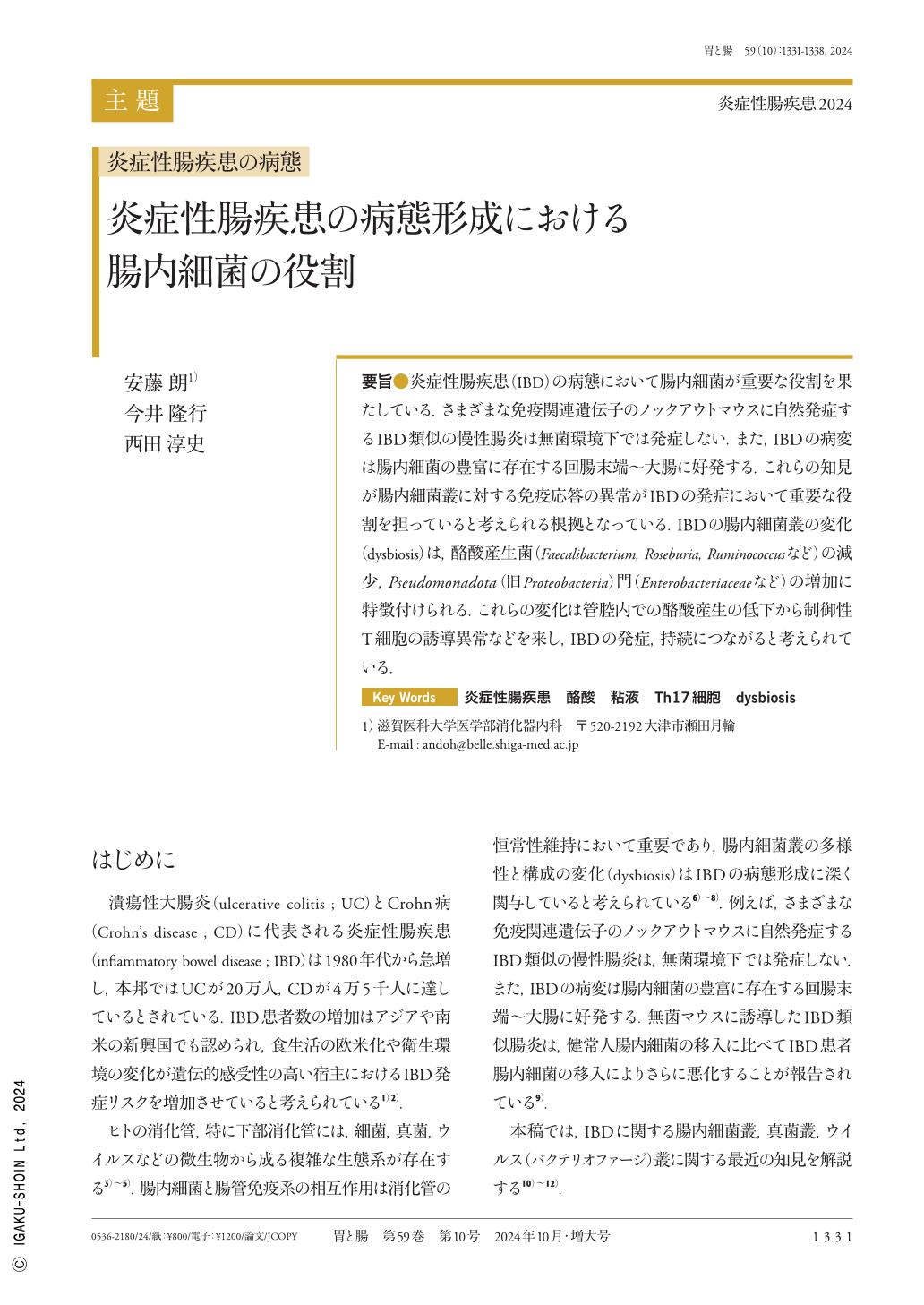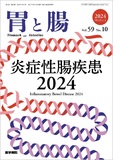Japanese
English
- 有料閲覧
- Abstract 文献概要
- 1ページ目 Look Inside
- 参考文献 Reference
要旨●炎症性腸疾患(IBD)の病態において腸内細菌が重要な役割を果たしている.さまざまな免疫関連遺伝子のノックアウトマウスに自然発症するIBD類似の慢性腸炎は無菌環境下では発症しない.また,IBDの病変は腸内細菌の豊富に存在する回腸末端〜大腸に好発する.これらの知見が腸内細菌叢に対する免疫応答の異常がIBDの発症において重要な役割を担っていると考えられる根拠となっている.IBDの腸内細菌叢の変化(dysbiosis)は,酪酸産生菌(Faecalibacterium,Roseburia,Ruminococcusなど)の減少,Pseudomonadota(旧Proteobacteria)門(Enterobacteriaceaeなど)の増加に特徴付けられる.これらの変化は管腔内での酪酸産生の低下から制御性T細胞の誘導異常などを来し,IBDの発症,持続につながると考えられている.
The gut microbiota plays a crucial role in the pathogenesis of inflammatory bowel disease(IBD). For instance, IBD-like experimental colitis, occurring spontaneously in knockout mice with various immune-related genes, fails to develop in a sterile environment. Furthermore, IBD lesions predominantly develop from the terminal ileum to the large intestine, where the intestinal bacteria are abundant. These findings support the notion that an abnormal immune response to the gut microbiota may greatly contribute to the pathogenesis of IBD. The changes in the gut microbiota(dysbiosis)in IBD are characterized by a reduction in butyrate-producing bacteria(Faecalibacterium, Roseburia, Ruminococcus, and so on)and an increase in Pseudomonadota(Proteobacteria)(Enterobacteriaceae and so on). These alterations result in reduced intraluminal butyrate production and abnormal induction of regulatory T cells, thereby contributing to the onset and persistence of IBD.

Copyright © 2024, Igaku-Shoin Ltd. All rights reserved.


